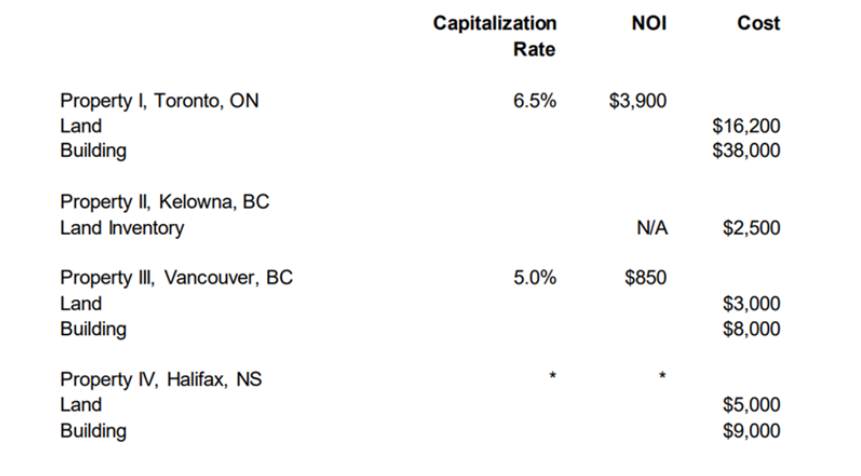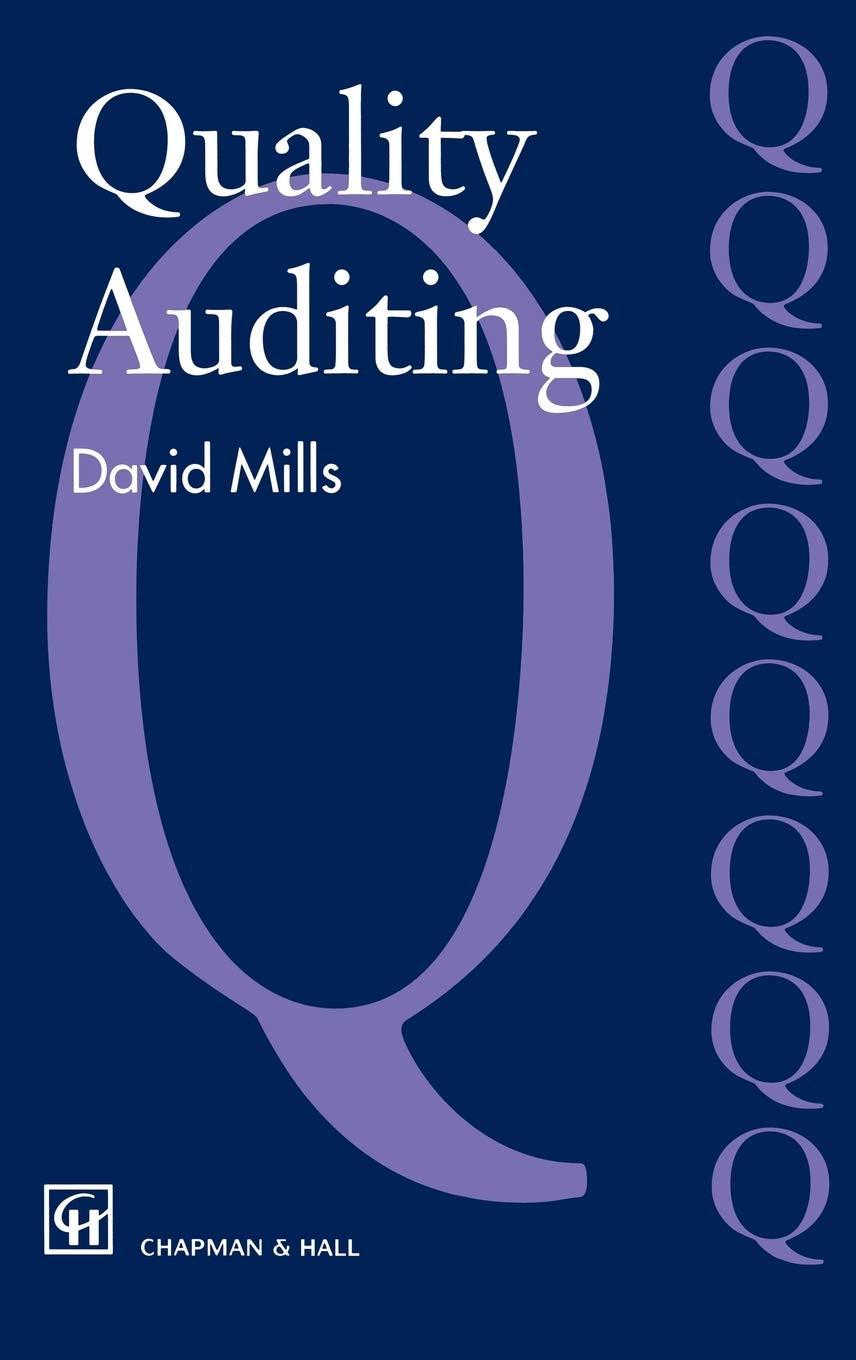Question
Overview It is September 17, 2022, and you, CPA, work as the senior tax analyst for OCI Inc. (OCI). OCI is an electronics retailer and
Overview
It is September 17, 2022, and you, CPA, work as the senior tax analyst for OCI Inc. (OCI). OCI is an electronics retailer and its shares are traded on the Toronto Stock Exchange. Part of its success has been through partially financing real estate developers during the construction of new strip malls and by owning its own real estate. You have completed a meeting with your boss, Chad Bowie, the vice-president of finance, to discuss the financing of a proposed expansion. OCI requires $45 million in financing to complete this expansion. Weve done all of our financial and tax diligence around the purchase, so we dont need to look at those elements of the project, said Chad. I need to finalize the financing. I would like to leverage our real estate portfolio but limit the security to the real estate itself. Our bank has indicated the best way to achieve this is to move the real estate into a new wholly-owned corporation (RealCo). We could get more financing by leveraging these properties than we could with traditional mortgages. Id like you to look at a few things for me. I will send you an e-mail shortly with my specific requests. (Appendix I)
APPENDIX I E-MAIL FROM CHAD BOWIE
From: C Bowie To: CPA
Re: Requests for proposed transaction
The OCI real estate portfolio has grown in value over a number of years. This type of real estate is usually valued through a capitalization rate method, by capitalizing the propertys net operating income (NOI) before tax to determine the fair market value for the total property (land plus building). The NOI of a property consists of the cash income for a property and excludes depreciation. The NOI and capitalization rate for each property are attached (Appendix II). We generally assume that land is worth 30% of the value of the total property. I would like you to address the following:
The financing term sheet (Appendix III) bases the financing on the fair market value of the properties moved into RealCo. I need you to determine if the loan will provide us with enough cash to fund our expansion after paying the land transfer tax and financing fees. Land transfer tax rates are in Appendix IV.
Are there any assets that will not qualify to be transferred to RealCo without incurring immediate income tax? If so, which one(s) will not qualify and how will we transfer them?
I hope at least some of the assets can be transferred to RealCo on a tax-free or tax-deferred basis. If so, please explain what provisions in the Income Tax Act allow for this, and generally how the transaction would be structured. For the assets that can be transferred without incurring immediate income tax, how will the transfer price for tax purposes be determined? What will be the deadline for filing any tax elections that may be required?
Once you have explained this, please draft any tax elections that may be required with respect to the transfer by calculating the amounts at which the assets will be transferred and the consideration that will be taken back. Include the precise numbers to use on the forms. We will make the acquisition directly through RealCo, so there is no need to discuss how to get the money out of RealCo once the loan is received.
The bank has an additional request. Id like you to prepare the forecast of capital cost allowance deduction available in the first two years in item number 5 of their term sheet. Id like to have RealCo incorporated on October 1, 2022. To simplify financial reporting, RealCo will have a year-end of December 31.
Also hope you can tell me the tax treatment of some specific items I have identified for RealCo (Appendix V) will they all be treated the same for tax as for accounting?
APPENDIX II:

Property I is located in a suburb with declining property values. Due to the unique location of this property, we had it valued by a local real estate professional who determined that the value of the land is $4,000 and the value of the building is $7,175.
Other information
Property II was originally acquired in 2013 to support the possibility of a future expansion to Kelowna. The land is currently zoned as residential and no applications have been filed to change this as there is no immediate plan to open a store in Kelowna. Omega (or RealCo) may sell the land if the right offer is received. It is currently listed for sale through a realtor at a price of $8,000.
OCI's undepreciated capital cost (UCC) of all Class 1 pooled assets, including other buildings that will not be transferred to RealCo, is $94,500 as at December 31, 2014.
APPENDIX III FINANCING TERM SHEET
The Lender shall provide OCI) with term notes with a floating charge over all assets of the Borrowing Party. This term sheet may be assigned by OCI to any subsidiary corporation or partnership (the Borrowing Party). The financing shall be subject to the following terms and conditions:
1. The maximum financing shall be equal to 70% of appraised fair market value for operating properties and 50% of appraised fair market value for undeveloped land inventory properties.
2. Interest shall be payable at an annual interest rate of 5% per annum, compounded annually.
3. A financing fee of 2% of the value of the loan shall be payable upon the closing of the loan. This amount will be deducted from the principal of the loan.
4. The Borrowing Party shall spend a minimum of 0.5% of the value of the property on incremental annual property improvements (that is, capital additions to class 1 buildings) commencing in Year 2. These improvements shall be in addition to regular maintenance and repairs currently deducted in the determination of the existing NOI.
5. A forecast of the capital cost allowance deduction available for the first two years of the Borrowing Partys operations shall be provided by OCI in advance of the notes being issued
APPENDIX IV LAND TRANSFER TAX RATES
1. British Columbia levies a land transfer tax at the rate of 2.5% on all properties in the province.
2. Land transfer tax in Nova Scotia is levied by the municipality instead of the province. Halifax levies a land transfer tax at the rate of 1.5% on all properties.
3. Ontario levies no land transfer tax on the first $50,000 of value; it levies 1% on the next $350,000 of value and 2% thereafter.
4. There are no exemptions for transfers of property within a related group of companies. Land Transfer Tax is applicable to the total value of the property (land and building), not just the portion allocated to land.
Instructions
Please prepare case report outlining all taxation issues.
CapitalizationRate6.5%5.0%NOI$3,900N/A$850Cost$16,200$38,000$2,500$3,000$8,000$5,000$9,000
Step by Step Solution
There are 3 Steps involved in it
Step: 1

Get Instant Access to Expert-Tailored Solutions
See step-by-step solutions with expert insights and AI powered tools for academic success
Step: 2

Step: 3

Ace Your Homework with AI
Get the answers you need in no time with our AI-driven, step-by-step assistance
Get Started


